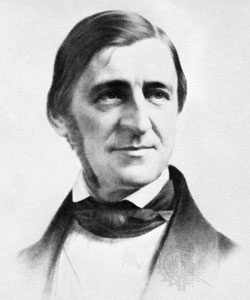American Renaissance
American literature
also called New England Renaissance
period from the 1830s roughly until the end of the American Civil War in which American literature, in the wake of the Romantic movement, came of age as an expression of a national spirit.
The literary scene of the period was dominated by a group of New England writers, the “Brahmins (Brahmin),” notably Henry Wadsworth Longfellow (Longfellow, Henry Wadsworth), Oliver Wendell Holmes (Holmes, Oliver Wendell), and James Russell Lowell (Lowell, James Russell). They were aristocrats, steeped in foreign culture, active as professors at Harvard College, and interested in creating a genteel American literature based on foreign models. Longfellow adapted European methods of storytelling and versifying to narrative poems dealing with American history. Holmes, in his occasional poems and his “Breakfast-Table” series (1858–91), brought touches of urbanity and jocosity to polite literature. Lowell put much of his homeland's outlook and values into verse, especially in his satirical Biglow Papers (1848–67).
 One of the most important influences in the period was that of the Transcendentalists (see Transcendentalism), centred in the village of Concord, Massachusetts, and including Ralph Waldo Emerson (Emerson, Ralph Waldo), Henry David Thoreau (Thoreau, Henry David), Bronson Alcott (Alcott, Bronson), George Ripley (Ripley, George), and Margaret Fuller (Fuller, Margaret). The Transcendentalists contributed to the founding of a new national culture based on native elements. They advocated reforms in church, state, and society, contributing to the rise of free religion and the abolition movement (abolitionism) and to the formation of various utopian communities, such as Brook Farm. The abolition movement was also bolstered by other New England writers, including the Quaker poet John Greenleaf Whittier (Whittier, John Greenleaf) and the novelist Harriet Beecher Stowe (Stowe, Harriet Beecher), whose Uncle Tom's Cabin (1852) dramatized the plight of the black slave.
One of the most important influences in the period was that of the Transcendentalists (see Transcendentalism), centred in the village of Concord, Massachusetts, and including Ralph Waldo Emerson (Emerson, Ralph Waldo), Henry David Thoreau (Thoreau, Henry David), Bronson Alcott (Alcott, Bronson), George Ripley (Ripley, George), and Margaret Fuller (Fuller, Margaret). The Transcendentalists contributed to the founding of a new national culture based on native elements. They advocated reforms in church, state, and society, contributing to the rise of free religion and the abolition movement (abolitionism) and to the formation of various utopian communities, such as Brook Farm. The abolition movement was also bolstered by other New England writers, including the Quaker poet John Greenleaf Whittier (Whittier, John Greenleaf) and the novelist Harriet Beecher Stowe (Stowe, Harriet Beecher), whose Uncle Tom's Cabin (1852) dramatized the plight of the black slave.Apart from the Transcendentalists, there emerged during this period great imaginative writers—Nathaniel Hawthorne (Hawthorne, Nathaniel), Herman Melville (Melville, Herman), and Walt Whitman (Whitman, Walt)—whose novels and poetry left a permanent imprint on American literature. Contemporary with these writers but outside the New England circle was the Southern genius Edgar Allan Poe (Poe, Edgar Allan), who later in the century had a strong impact on European literature.
- Gaspé Peninsula
- Gaspé, Philippe Aubert de
- Gasquet, Francis Aidan
- gas reservoir
- Gassendi, Pierre
- Gasser, Herbert Spencer
- Gass, William H.
- Gastein, Convention of
- Gastein Valley
- gasteromycetes
- gasterosteiform
- Gaston Baty
- Gaston Defferre
- Gaston Doumergue
- Gaston Eyskens
- Gaston Frommel
- Gaston Gallimard
- Gastonia
- Gaston III
- Gaston Lachaise
- Gaston Leroux
- Gaston Maspero
- Gaston Maurice Julia
- Gaston Paris
- Gaston Planté